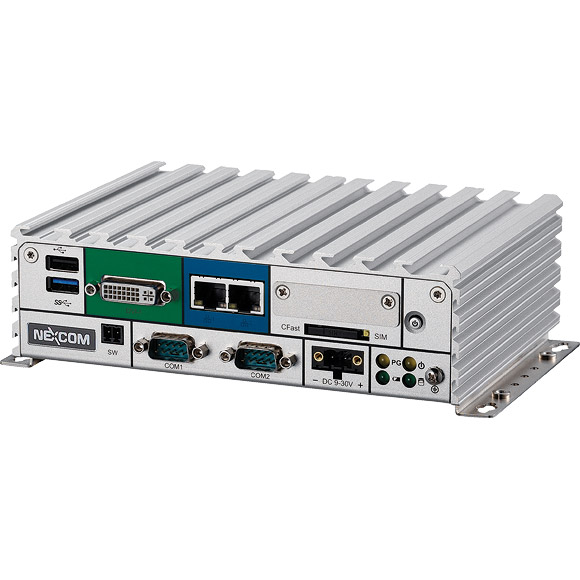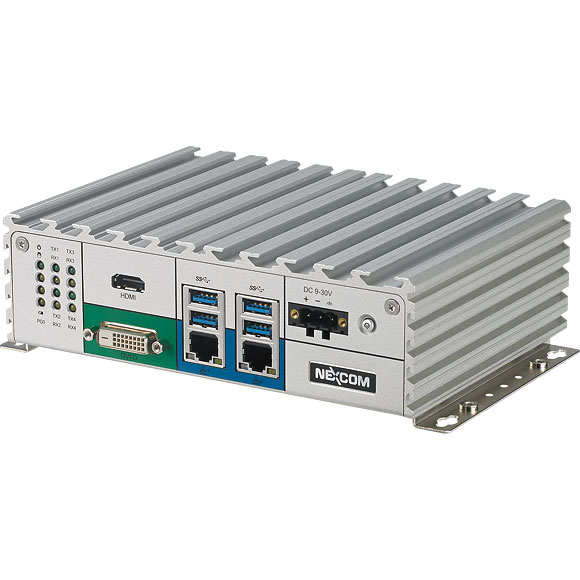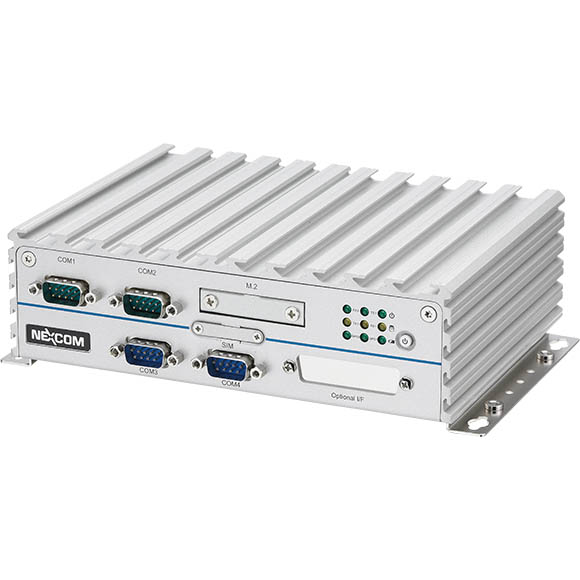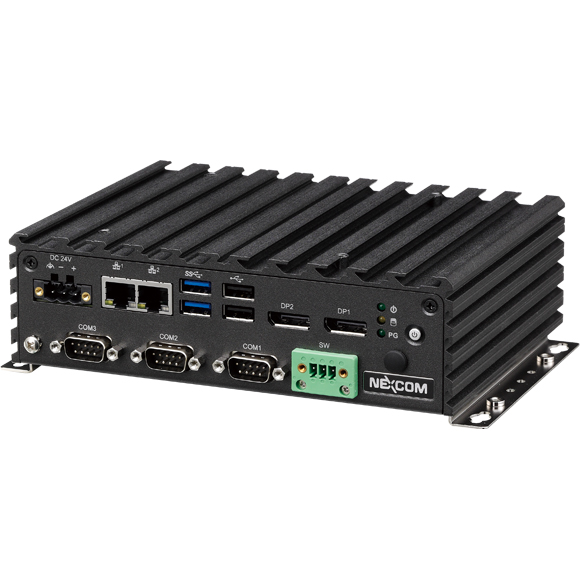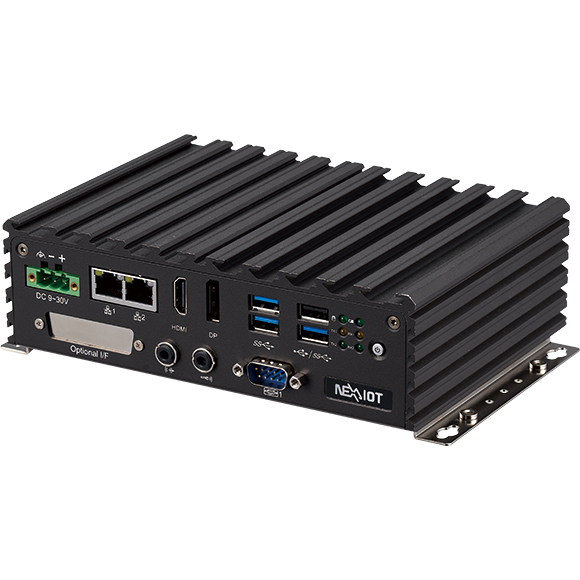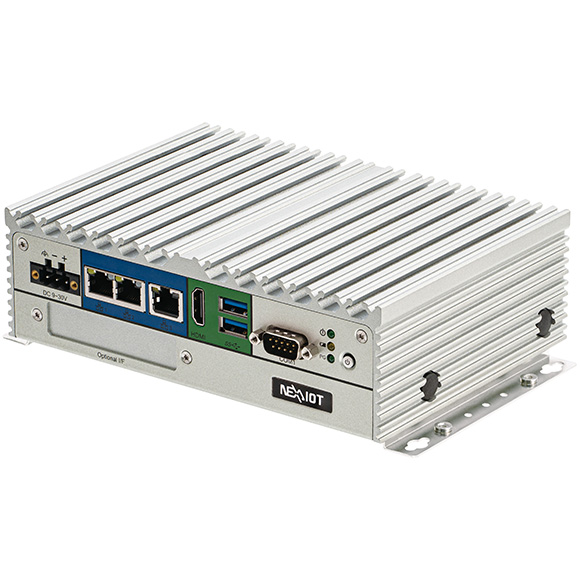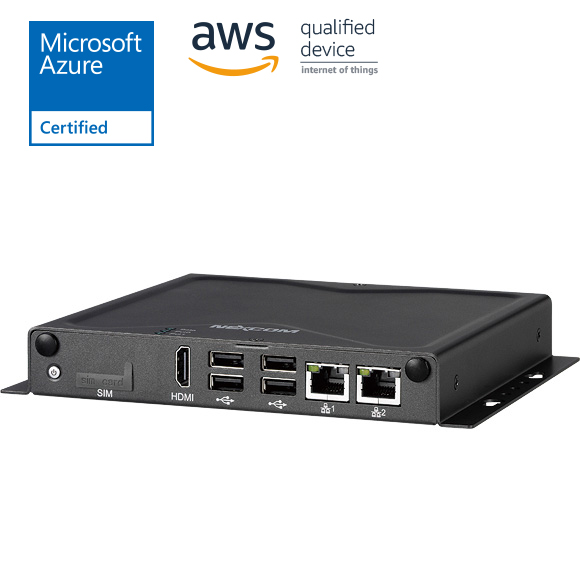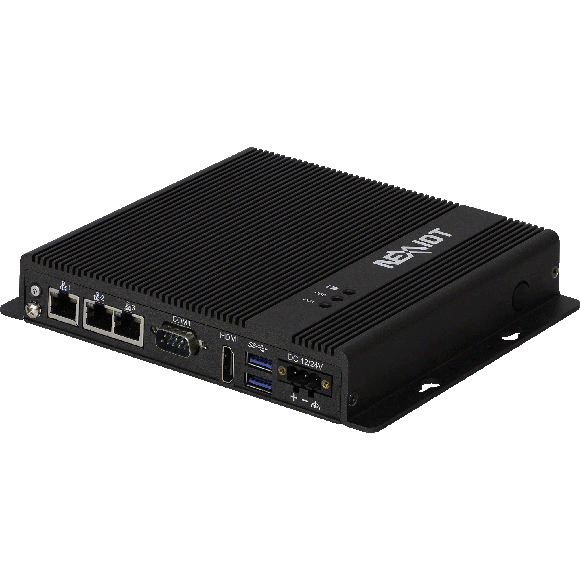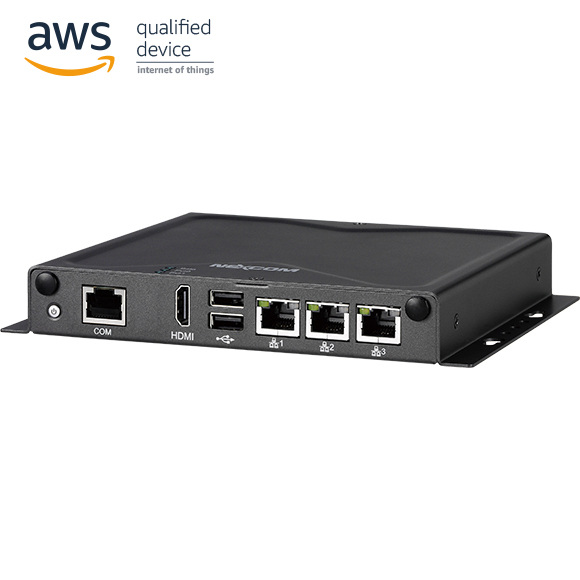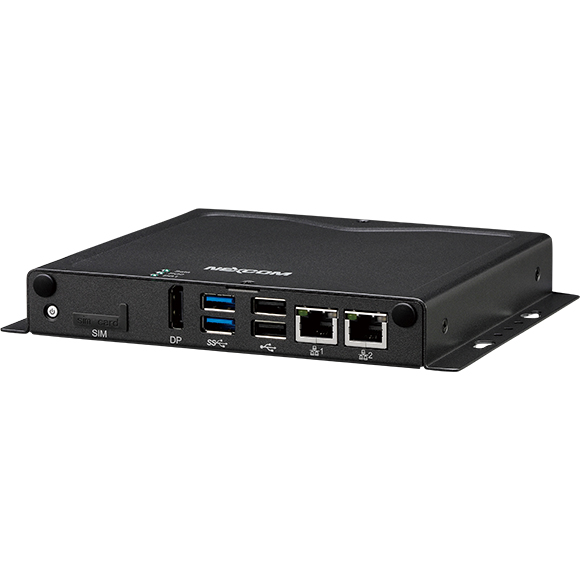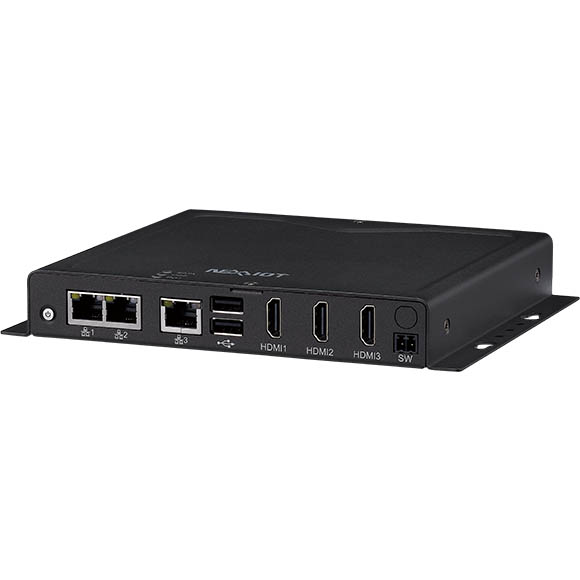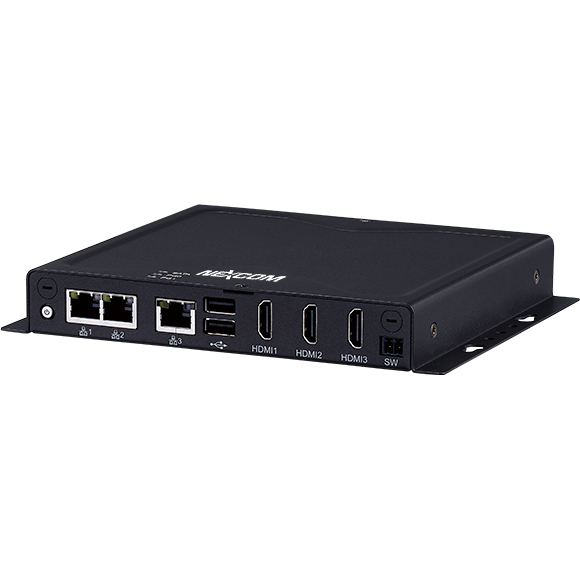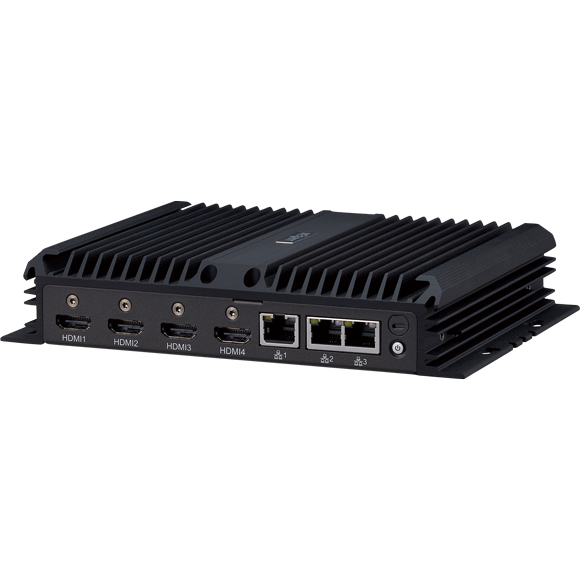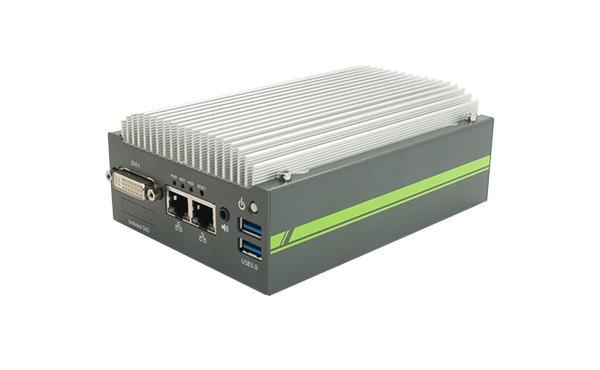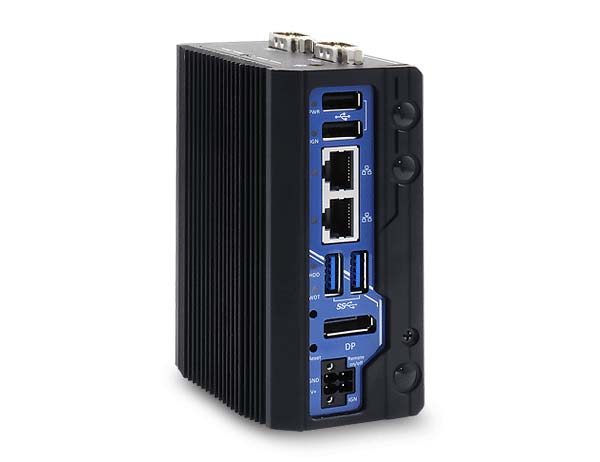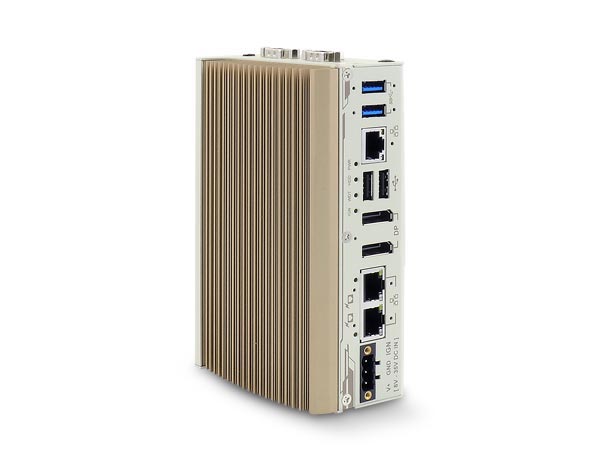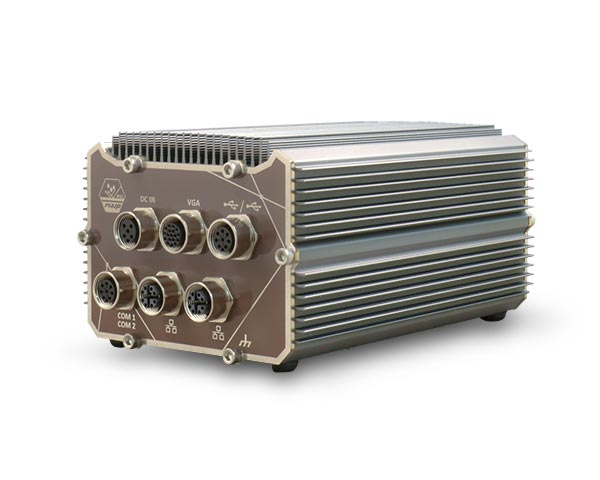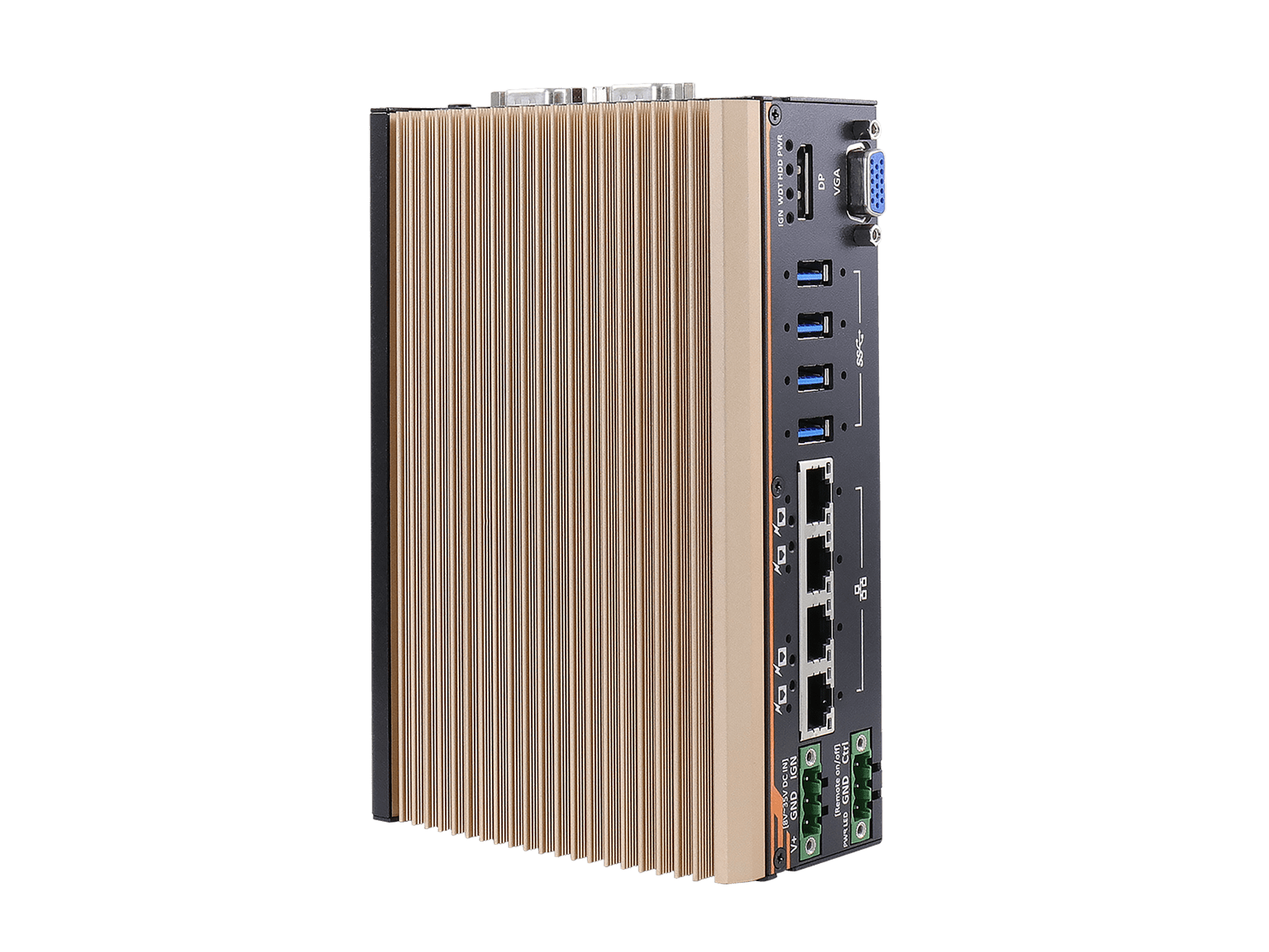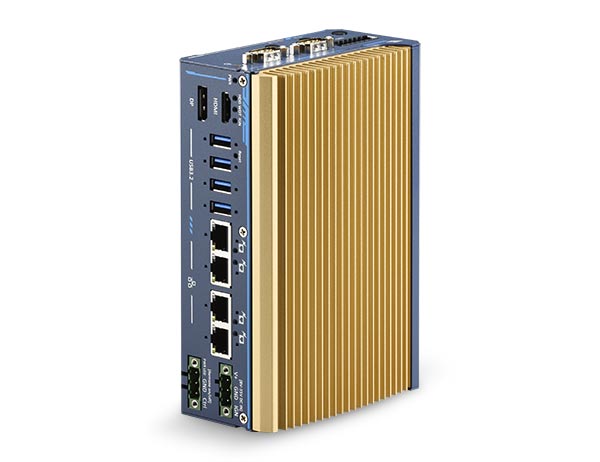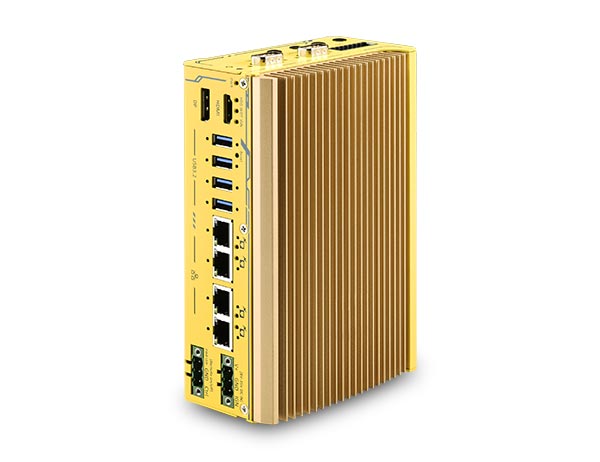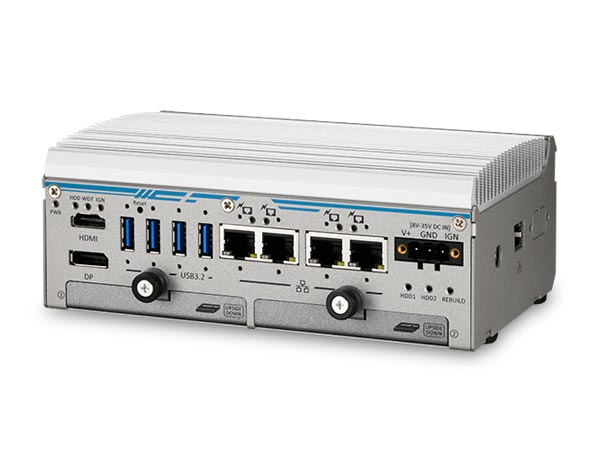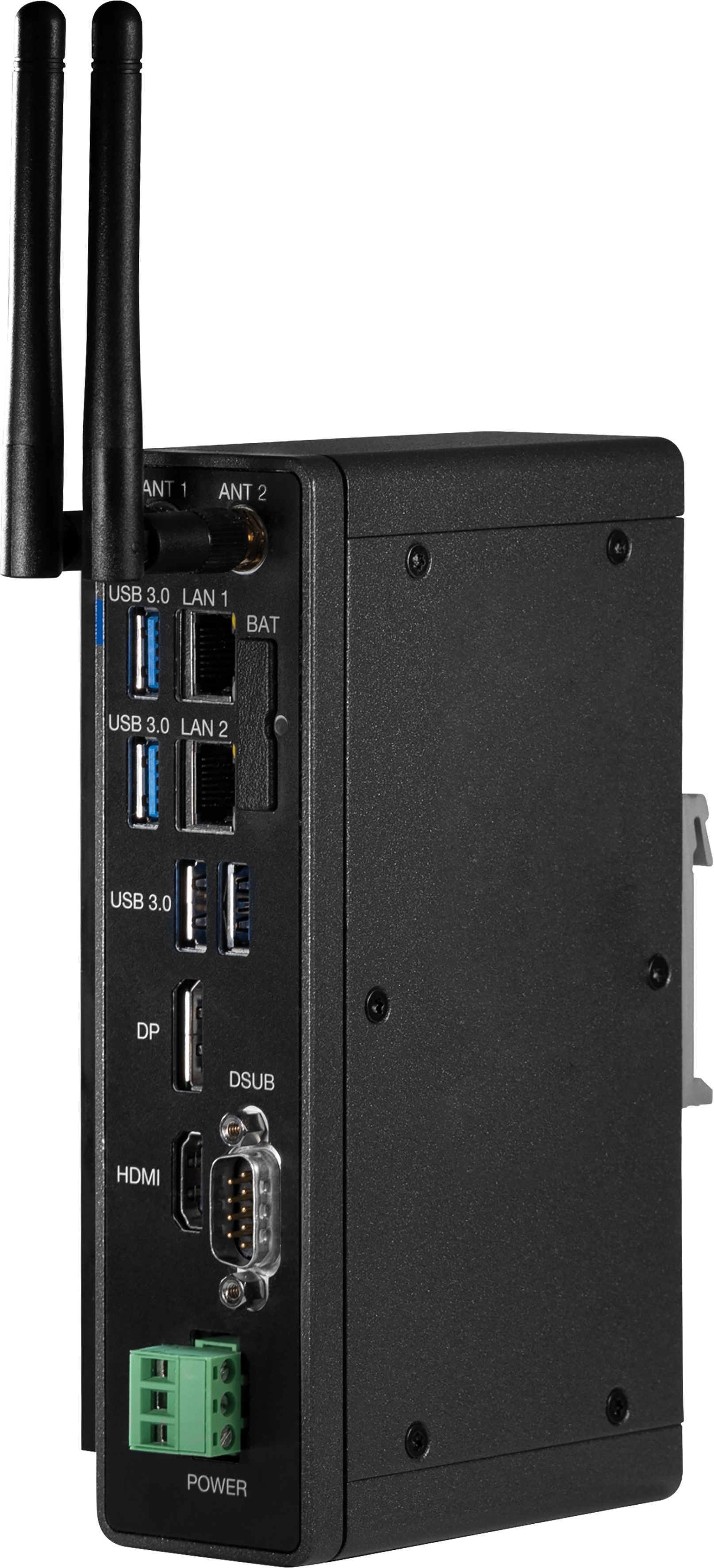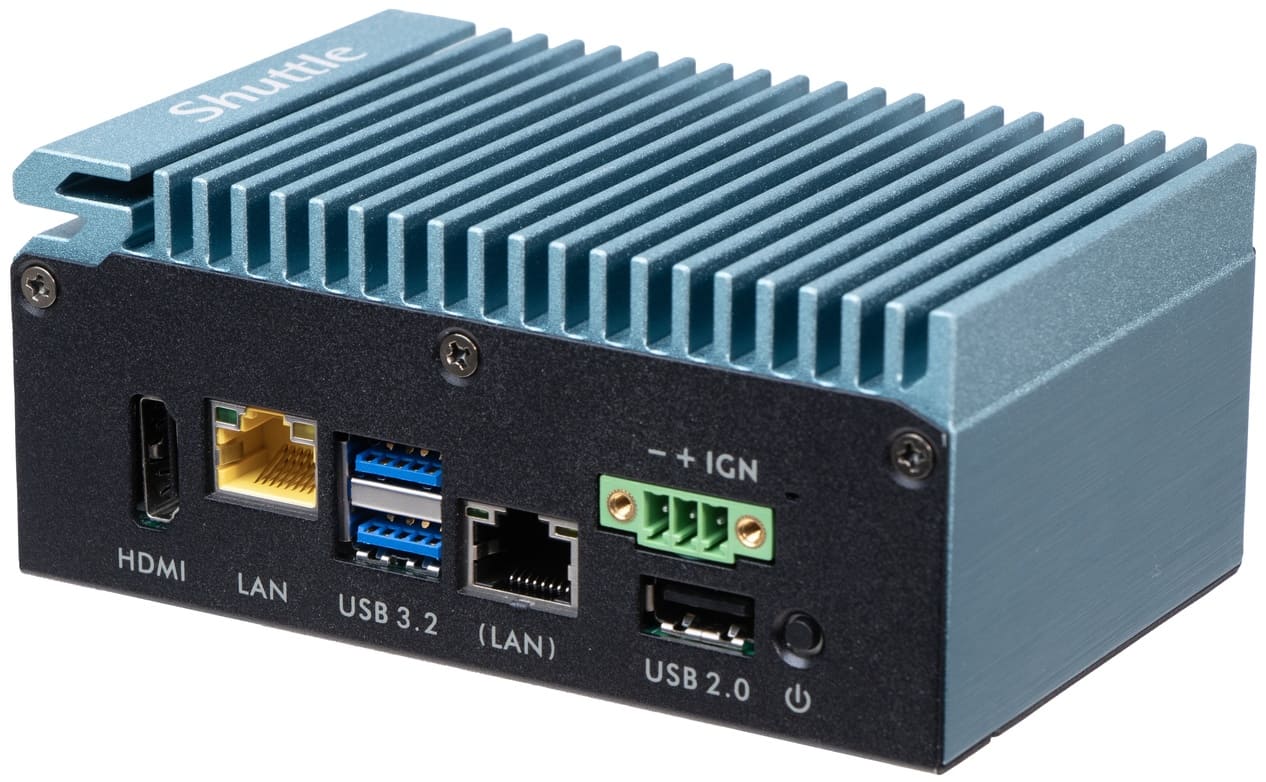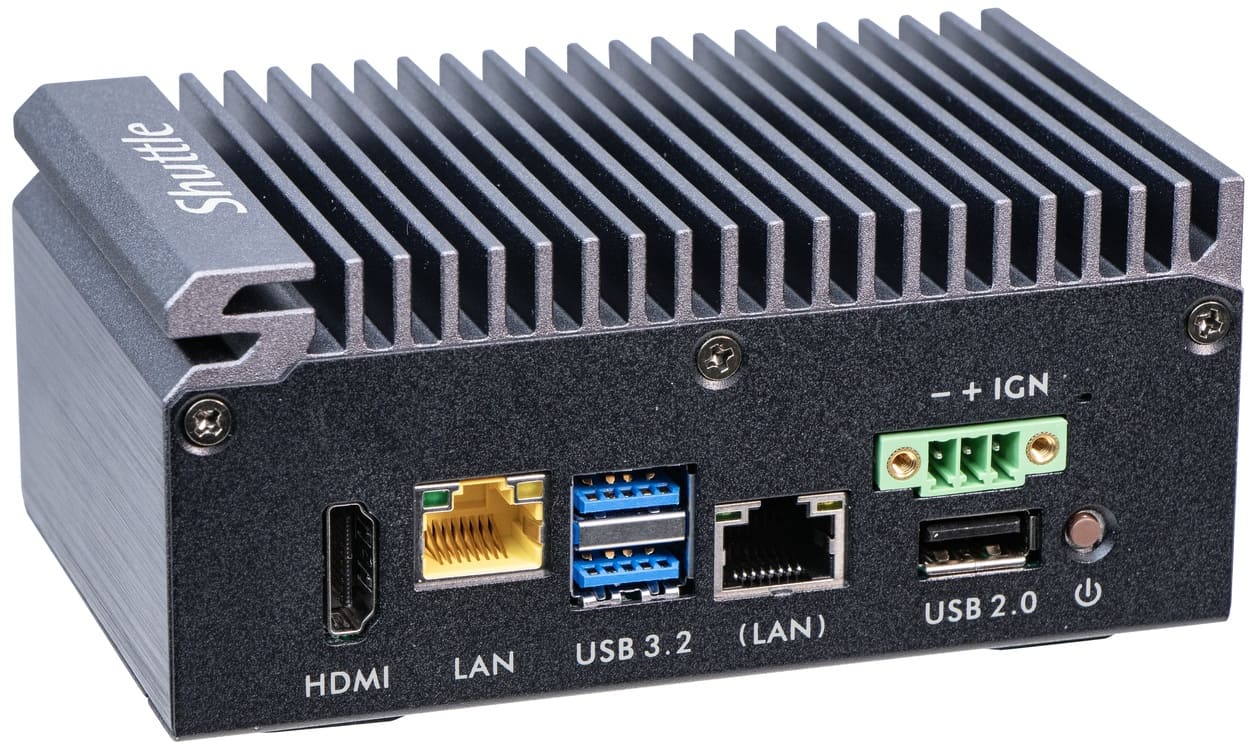
Low Power Industrial PCs
Filter
–
Low Power Industrial PCs – Efficient Solutions for Industrial Applications
Low Power Industrial PCs offer an ideal combination of performance and energy efficiency. They are perfect for applications that require reliable computing power with low energy consumption, without compromising on reliability. Especially suited for IoT, automation, and embedded systems.
Key features of our Low Power Industrial PCs:
- Energy-Efficient Architecture: Low power consumption with strong performance.
- Fanless Design: Reliable and low maintenance.
- Compact: Space-saving and easy to integrate.
- Versatile Connectivity: Ethernet, USB, COM ports, and wireless technologies.
- Robust Performance: Suitable for 24/7 operation in demanding environments.
Our Low Power Industrial PCs are the perfect choice for energy-efficient and reliable industrial solutions.
NISE-105 series
- Intel Atom / Celeron CPU
- Up to 8GB DDR3 RAM
- 2x Gigabit Intel I210 Ethernet Ports
- USB 2.0 & USB 3.0
- Two independent Displays via HDMI & DVI-I
- 4x Serial RS232/422/485 interfaces
- MiniPCIe port for Wifi/4G module
- -20 ~ 70 °C operating temperature
NISE-106-N3710
- Intel Pentium N3710 Quad Core CPU
- Up to 8GB DDR5 RAM
- 1x HDMI, 1x DVI-D, 1x DisplayPort
- 2x Intel Gigabit Ethernet Ports
- 4x USB 3.0, 4x serial RS232/422/485 interfaces
- 1x 2,5" SATA 3.0 SSD
- MiniPCIe port for Wifi/4G Module
- -10 ~ 60 °C operating temperature
- 9-30V wide range input
NISE-107 series
- Intel Atom Dual/Quad Core CPU
- Up to 8GB DDR3 RAM
- 1x DisplayPort, 1x DVI-D
- 2x Intel I210 GbE LAN Ports
- 4x USB 3.0, 4x serial RS232/422/485 ports
- 1x 2,5" SSD, 1x M.2 2242 NVME
- MiniPCIe port for Wifi/4G module
NISE-109 series
- Intel Atom / Celeron CPU
- Up to 16GB DDR4 RAM
- 1x M.2 2242 NVME, 1x 2,5" SSD
- 3x USB 3.0, 4x serial ports
- 2x Intel I210 GbE LAN ports
- TPM 2.0
- -20 ~ 70 °C operating temperature
- CE/FCC class A certified
NISE-110 Serie
- Intel Atom x7211E / Celeron N97 CPU
- Up to 16 GB DDR5 RAM
- 1x M.2 2242/2280 NVME, 1x mSATA
- 2x USB 3.2, 2x USB 2.0
- 1x HDMI, 1x DisplayPort
- -40 ~ 60°C operating temperature
- 9-30V DC wide range input
- CE, FCC Class A and UL certified
NISE-50-A04 series
- Onboard Intel N97 Quad Core CPU
- Up to 16GB DDR5 RAM
- M.2 2280/2242 SATA NVME
- 3x Intel 2.5 GbE ports
- 2x/6x USB 3.2, 1x/2x COM, 1x HDMI
- TPM 2.0, Windows 11 approved
- 12/24V DC input
- CE/FCC Class A certified
NISE-51 series
- Intel Dual Core / Quad Core CPU
- Up to 8GB DDR3 RAM
- 16GB - 32GB Onboard EMMC + optional M.2 2242 module
- mPCIe Slots for add-on cards
- USB 2.0 / 3.0, 3x COM, 1x DisplayPort
- 12V / 24V DC input
- CE/FCC certified
NISE-53 series
- Intel Atom / Celeron CPU
- Up to 16GB DDR4 RAM
- 2x USB 3.0, 2x USB 2.0, 2x COM
- 3x HDMI, 3x GbE LAN
- 32GB Onboard EMMC and M.2 SATA Slot
- Full Size mPCIe for add-on cards
- -10 ~ 60°C operating temperature
- CE & FCC Class A certified
NISE-70 Serie
- Intel Celeron / Core CPU der 11. Generation
- Bis zu 32GB DDR4 RAM
- 3x USB 3.0, 1x USB 2.0, 2x COM
- 3x Intel GbE LAN Port
- 4x HDMI, unterstützt 4k @ 30Hz
- TPM 2.0 Modul
- -10 ~ 60°C Betriebstemperatur
- 12V - 24V DC Input
POC-200 Serie
- Intel® Atom™ Quad-core CPU
- 1x SO-DIMM socket for DDR3L-1333
- 3x USB 3.0 and 1x USB 2.0
- 1x DVI port, up to 4x serial ports
- 2x Gigabit (PoE+) Ethernet ports
- Supports a 2.5" HDD/SSD
- Rugged fanless operation, wide temperature range -25°C to 70°C
- Wall or DIN-rail mounting
POC-40 Series
- Up to 32 GB DDR4-3200 RAM
- 2x USB 3.1, 2x USB 2.0, 2x Gigabit Ethernet ports, 1x DisplayPort
- 1x M.2 2280 M-Key slot
- Fanless operation with wide temperature range
- Extremely compact design
POC-400 Serie
- Intel® Elkhart Lake Atom® x6425E Quad-Core CPU
- Up to 32 GB DDR4-3200 RAM
- 2x USB 3.1, 2x USB 2.0, DisplayPort connection
- 3x 2.5 GbE ports
- 1x M.2 2280 M-Key slot
- Fanless operation with a wide temperature range from -25°C to 70°C
- Very compact design
POC-465AWP
- Intel® Elkhart Lake Atom® x6425E quad-core CPU
- Up to 32GB DDR4-3200 SDRAM
- M12 connections: 2x USB, 2x Ethernet, 2x serial interfaces, 1x VGA
- M.2 2280 SSD, 1x full-size miniPCIe port
- Robust, fanless operation up to 70°C
- Water and dust protected to IP66
POC-500 Series
- AMD Ryzen™ Embedded V1000 quad-core CPU
- Up to 32 GB DDR4-3200 RAM
- 4x USB 3.0, 4x PoE+ Gigabit Ethernet ports, DisplayPort and VGA connection
- 1x M.2 2280 M-Key slot
- Operation in a wide temperature range from -25°C to 70°C
- Expandable thanks to MezIO® interface
- Very compact design
POC-700 Serie
- Intel® Alder Lake Core™ i3-N305 or Atom® x7425E CPU
- Up to 16GB DDR5-4800 RAM
- 4x USB 3.2, 4x Gigabit Ethernet (PoE+) ports, Displayport, HDMI
- 1x M.2 2280 M key slot, 1x full-size mini PCIe
- Fanless operation with a wide temperature range from -25°C to 70°C
- High performance with very compact dimensions
POC-751VTC
- Intel® Alder Lake i3-N305 Processor (15 W)
- Four GbE-PoE+ ports and four USB 3.2 Gen 2 ports with screw lock
- Two monitor outputs (DP++ and HDMI 1.4b)
- Two isolated CAN 2.0 ports, with support for SocketCAN in Linux
- Isolated DI (8-channel) and isolated DO (8-channel)
-
Power supply via 8 – 35 V DC input, with integrated ignition control
-
E-Mark and EN 50155 EMC certification
Prime Box Pico
- Intel® Atom x7-E3950, Quad Core, 1.6 GHz
- Up to 8 GB DDR3L, 1600 MHz
- 1x mSATA 64 GB - 512 GB, flash storage
- 2x GbE LAN, 4x USB 3.0, DisplayPort, HDMI
- 1x RS232/422/485
- mSATA and mPCIe interface for expansions
- Suitable for wall or DIN-rail mounting
Vorteile eines Low Power Industrie PCs
- Energieeffizienz: Durch ihren geringen Stromverbrauch tragen Low Power PCs nicht nur zur Senkung der Betriebskosten bei, sondern leisten auch einen aktiven Beitrag zur Nachhaltigkeit – ideal für energieoptimierte Industrieanlagen.
- Lüfterloses Design: Dank passiver Kühlung sind die Systeme besonders resistent gegenüber Staub, Erschütterungen und Temperaturschwankungen – und dabei nahezu wartungsfrei.
- Kompakte Bauweise: Die schlanken Formfaktoren ermöglichen die einfache Integration in Schaltschränke, Maschinen oder mobile Plattformen – perfekt für Platzmangel oder Embedded-Umgebungen.
- Zuverlässige Performance: Trotz minimaler Leistungsaufnahme überzeugen Low Power Industrie PCs mit hoher Systemstabilität und langem Lebenszyklus – selbst im Dauerbetrieb.
Ein bewährtes Beispiel für eine kompakte und energieeffiziente Lösung ist die POC-700 Serie von OMTEC – ideal für Edge-Anwendungen, medizinische Geräteintegration und platzkritische Industrieprojekte.
Typische Anwendungsbereiche für Low Power Industrie PCs
Stromsparende Embedded Systeme werden in zahlreichen industriellen und gewerblichen Szenarien eingesetzt, in denen kompakte Bauweise, Energieeffizienz und zuverlässiger Dauerbetrieb gefragt sind. Besonders vorteilhaft sind sie in Umgebungen, in denen klassische Industrie-PCs aufgrund von Platz-, Wärme- oder Energieeinschränkungen an ihre Grenzen stoßen.
- IoT- und Edge-Computing: Dezentrale Datenverarbeitung direkt am Sensor oder Gerät – ideal für smarte Fabriken, Maschinenüberwachung oder vorausschauende Wartung.
- Gebäudeautomation: Steuerung von Beleuchtungs-, Klima- und Sicherheitsanlagen in modernen Gebäudestrukturen – mit minimalem Energiebedarf und hoher Ausfallsicherheit.
- Medizintechnik: Energieeffiziente Recheneinheiten für mobile Diagnosesysteme, Laborausstattung oder Patientenüberwachung – zuverlässig und hygienisch integrierbar durch lüfterloses Design.
- Videoüberwachung & Bildanalyse: Kompakte Systeme für die Steuerung von IP-Kameras, Edge-Videoanalyse oder verteilte Sicherheitssysteme – mit 24/7-Stabilität.
Ein Low Power Industrie PC von OMTEC ermöglicht es Unternehmen, moderne Technologien energieeffizient und platzsparend zu realisieren – ohne Kompromisse bei Leistung oder Zuverlässigkeit.
Warum ein Low Power Industrie PC von Neousys?
Neousys steht für Qualität, Innovation und praxisgerechte Lösungen im industriellen Computing. Die stromsparenden PCs des Herstellers wurden speziell für moderne Industrieanwendungen entwickelt, bei denen kompakte Abmessungen, Energieeffizienz und Zuverlässigkeit im Vordergrund stehen. Sie bieten nicht nur eine stabile Plattform für den 24/7-Betrieb, sondern lassen sich auch flexibel in verschiedenste Umgebungen integrieren.
- Industriekomponenten mit langer Lebensdauer: Robuste Bauweise und selektierte Bauteile gewährleisten zuverlässigen Dauerbetrieb auch unter anspruchsvollen Bedingungen.
- Flexible Konfigurationsoptionen: Ob Schnittstellen, Speicher oder Montage – die Systeme lassen sich individuell an Ihre Projektanforderungen anpassen.
- Technischer Support durch OMTEC: Wir begleiten Sie von der Auswahl bis zur Inbetriebnahme mit fundierter Beratung, Teststellungen und schneller Unterstützung bei Integration und Wartung.
Ein Low Power PC von Neousys bietet die perfekte Kombination aus Effizienz, Robustheit und Flexibilität – ideal für IoT-Projekte, Automatisierung oder embedded Systeme mit hohem Anspruch an Energie- und Betriebseffizienz.
Smarte Einsatzgebiete für Low Power Industrie PCs
Energieeffiziente Industrie Computer bieten eine energieeffiziente und zuverlässige Lösung für zahlreiche moderne Anwendungsfelder – insbesondere dort, wo Rechenleistung bei geringem Energieverbrauch und kompakter Bauweise gefragt ist.
- Logistik & Lagerautomatisierung: Steuerungssysteme für autonome Transportfahrzeuge, Förderanlagen und Lagerroboter – mit maximaler Energieeffizienz im 24/7-Betrieb.
- Smart Cities: Intelligente Überwachungs- und Steuerlösungen für Verkehrsleitsysteme, Lichtmanagement oder die Integration in vernetzte Energieversorgungsnetze.
- Agrartechnologie: Einsatz in landwirtschaftlichen Maschinen und Sensornetzwerken zur präzisen Feldbewirtschaftung, Wetterdatenerfassung und Ressourcensteuerung.
- Energiewirtschaft: Integration in Smart Grids zur Optimierung von Stromverteilung, Echtzeit-Lastmanagement und Fernwartung von Energieinfrastruktur.
Durch ihre lüfterlose Bauweise und hohe Resistenz gegenüber Staub, Feuchtigkeit und Vibrationen sind Low Power PCs zudem ideal für extreme Umgebungen – z. B. in Offshore-Anlagen, im Bergbau oder der Schwerindustrie.
Low Power PCs in der Industrie 4.0 und 5.0
Low Power Industrie PCs spielen eine zentrale Rolle in der digitalen Transformation industrieller Prozesse – sowohl in der Industrie 4.0 als auch in der aufkommenden Industrie 5.0. Durch ihre energieeffiziente Architektur und kompakte Bauweise sind sie die ideale Basis für vernetzte Systeme, dezentrale Rechenleistung und smarte Automatisierung.
In der Industrie 4.0 sorgen Low Power PCs für die zuverlässige Verarbeitung von Sensordaten, die Überwachung von Produktionsanlagen und die Steuerung autonomer Systeme – etwa in IoT-Geräten oder Edge-Computing-Umgebungen. Ihr geringer Stromverbrauch ermöglicht dabei einen durchgängigen 24/7-Betrieb bei minimalen Betriebskosten.
Mit dem Übergang zur Industrie 5.0 gewinnen Low Power Systeme weiter an Bedeutung: Sie unterstützen KI-gestützte Anwendungen, die auf eine enge Zusammenarbeit zwischen Mensch und Maschine ausgerichtet sind. Dazu zählen unter anderem kollaborative Roboter (Cobots), adaptive Steuerungssysteme und intelligente Assistenzlösungen – immer mit dem Ziel, Produktivität, Nachhaltigkeit und menschliche Interaktion zu vereinen.
Nachhaltigkeit und Zukunftsfähigkeit mit Low Power Industrie PCs
Stromsparende PCs bieten nicht nur technische Effizienz, sondern auch einen echten Mehrwert in Sachen Nachhaltigkeit. Durch ihren deutlich reduzierten Energieverbrauch tragen sie aktiv zur Senkung des CO₂-Fußabdrucks in industriellen Anwendungen bei – ein wichtiger Schritt für Unternehmen, die ökologische Verantwortung mit wirtschaftlicher Effizienz verbinden möchten.
Gerade in energieintensiven Branchen ermöglichen Low Power PCs eine umweltfreundliche Alternative zu klassischen Industriecomputern – ohne Kompromisse bei Leistung, Zuverlässigkeit oder Konnektivität. Dank ihrer Kompatibilität mit aktuellen Industrie-Standards, modernsten Schnittstellen und ihrer modularen Erweiterbarkeit lassen sich die Systeme langfristig betreiben und problemlos in bestehende Infrastrukturen integrieren.
So vereinen sie Energieeffizienz, technologische Offenheit und ökologische Verantwortung – und leisten damit einen wichtigen Beitrag zur nachhaltigen und zukunftsfähigen Industrie 4.0 und 5.0.
Unsere Highlights
POC-700 Serie
- Intel® Alder Lake Core™ i3-N305 or Atom® x7425E CPU
- Up to 16GB DDR5-4800 RAM
- 4x USB 3.2, 4x Gigabit Ethernet (PoE+) ports, Displayport, HDMI
- 1x M.2 2280 M key slot, 1x full-size mini PCIe
- Fanless operation with a wide temperature range from -25°C to 70°C
- High performance with very compact dimensions
NISE-105 series
- Intel Atom / Celeron CPU
- Up to 8GB DDR3 RAM
- 2x Gigabit Intel I210 Ethernet Ports
- USB 2.0 & USB 3.0
- Two independent Displays via HDMI & DVI-I
- 4x Serial RS232/422/485 interfaces
- MiniPCIe port for Wifi/4G module
- -20 ~ 70 °C operating temperature

